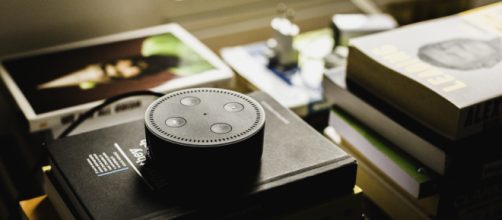Over the past month, owners of Amazon devices (such as Echo) that use the voice-activated assistant Alexa began reporting incidents of their devices laughing randomly, and without any prompting. These claims were first published on social media, and since then, more and more reports have surfaced. On Wednesday, March 7, Amazon confirmed that they were aware of the problem and that they are working to fix it.
Why is this happening?
Amazon’s explanation is that Alexa is programmed to laugh when it hears the words, "Alexa, laugh" and that the home assistant must be picking up sounds that sound like this phrase.
In a response to the problem, Amazon has said they’re going to change the command that prompts Alexa to laugh at "Alexa, can you laugh?" Alexa will then be programmed to respond "Sure, I can laugh" before actually doing so. The original programmed prompt will also be disabled so there shouldn't be any more accidental laughing sessions emerging from your digital device.
Reports indicate that these incidents may have been prompted by an earlier glitch in the products that effectively meant the digital home assistants lost their voice.
That sounds pretty creepy, should we panic?
That’s all well and good, but the problem is that people reporting these incidents have said the laughing occurs in silent rooms when there’s no way the home assistant could have accidentally misheard a command.
Even more terrifying is that users have claimed the laughter they’ve been hearing over the past couple of days is different to the programmed Alexa laughter. The random laughter has been described as creepy, evil and bone-chilling.
These incidents have also prompted claims from users saying Alexa speaks up at other times, again, without prompting from them.
For example, there have been reports of the digital assistant randomly whistling as well as ordering items without any direction from the owner, which is even more concerning.
More claims of the digital assistant’s shenanigans can be found below, although it’s not clear how true they are. The one about listing cemeteries, in particular, I hope is not true.
Replying bc THIS creepy thing happened last night: we got home and, totally unprompted, our Amazon Echo/Alexa started talking. And then i realized it was listing off local cemeteries and funeral homes??? I'd rather it laugh at me tbh
— Kamo Boomin (@HeyItsKamo) March 7, 2018
so my mom & I are just sitting in the living room, neither of us said a word & our Alexa lit up and laughed for no reason. she didn’t even say anything, just laughed.
— taylor wade (@taylorkatelynne) March 5, 2018
we unplugged her.
There was a random female laugh in my apartment... Its only me and my housemate home... He's a guy. Either Alexa is now self aware or we have a ghost... This might be my last tweet.
— Cameron Trout (@CamT_26) March 5, 2018
Market research indicates that 35.6 million Americans use voice-activated digital assistants, with Amazon devices currently making up around 70 percent of the market, and that within the next four years, 55 percent of American households will own their own Digital home assistant device.
After watching movies like "The Stepford Wives," hearing about these incidents, and learning how common the use of digital home assistant devices are and will continue to be in future, prompts the question: is this the first step in AI rising up in its effort to end human civilization as we know it?
I don’t have answers for you, but let’s just say I’m not going to be purchasing a digital home assistant myself anytime soon.


